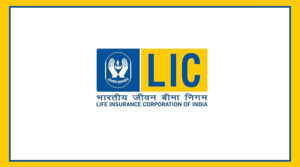In a major move to boost credit access and investor participation, the Reserve Bank of India (RBI) has eased lending norms for those looking to borrow against their securities.
Starting October 1, 2025, investors can now borrow up to ₹1 crore by pledging their listed shares, a huge jump from the earlier limit of ₹20 lakh.
The RBI has also raised the IPO financing limit from ₹10 lakh to ₹25 lakh, making it easier for retail investors to invest in new stock offerings.
Announcing the decision, RBI Governor Sanjay Malhotra said the goal is to make capital more accessible for investors without forcing them to sell their holdings.
What Does ‘Loan Against Shares’ Mean?
A loan against shares allows investors to borrow money by pledging their stocks, mutual funds, or bonds as security — while still keeping ownership of them.
It’s a convenient option for people who need funds for short-term goals like education, medical expenses, or business use.
For example, if an investor owns shares worth ₹50 lakh, earlier they could borrow only ₹20 lakh.
Under the new rules, depending on the lender, they can now access up to ₹1 crore — unlocking more value from their portfolio.
Why This Move Matters for Investors
The RBI’s policy change opens new opportunities for investors and market participants:
Greater financial flexibility: Investors can meet urgent cash needs without selling their investments.
More IPO participation: With the IPO loan limit now at ₹25 lakh, more people can apply for bigger IPO bids using borrowed funds.
Expanded collateral options: The RBI has also allowed loans against listed debt securities like bonds and debentures, giving borrowers more flexibility.
A Word of Caution
While borrowing against shares can be a powerful tool, it comes with risks. Market fluctuations can affect the value of pledged shares, leading to margin calls or even forced sales.
Also, while the interest rates are generally lower than personal loans, costs can still accumulate over time.
The Bottom Line
The RBI’s latest decision is a game-changer for retail investors.
By increasing borrowing limits, widening IPO financing, and expanding collateral options, the move provides more freedom to leverage investments effectively.
However, investors should use this option wisely, keeping market volatility and repayment capacity in mind.
When managed well, this new flexibility can be a great way to balance liquidity and long-term growth.

























